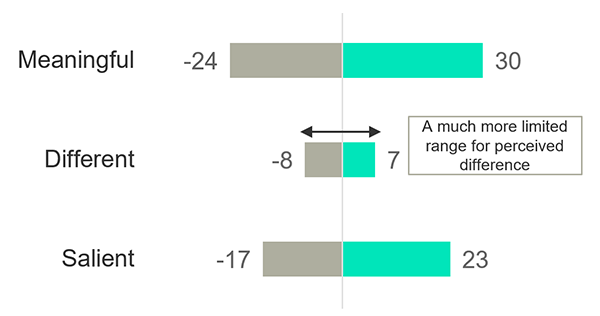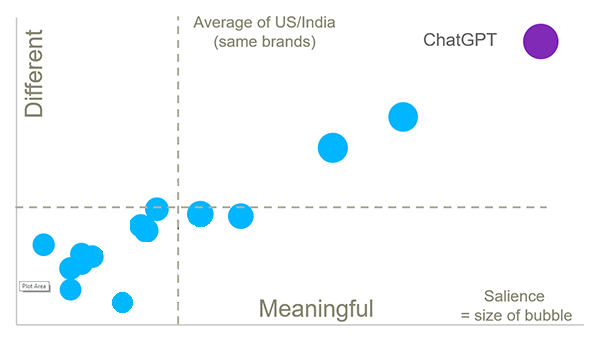ChatGPT has ‘generated’ headlines around the world since its 2022 launch, rapidly amassing 100 million users and $2bn in subscription-based sales. The tool is one of very few in the generative AI space that can lay claim to having established a brand
The history of ChatGPT can be traced back to the development of the original GPT model, introduced in 2018. Owner OpenAI released successive versions of GPT, each one more sophisticated and capable than the last – ChatGPT is an extension of the company’s work in natural language processing and artificial intelligence.
ChatGPT specifically refers to the application of language models in conversational settings. Users can interact in various contexts, including customer service, language learning, creative writing, and more. The model’s ability to understand and generate human-like text has made it a valuable tool for a wide range of applications.
The brand building opportunity within generative AI
There is currently a striking lack of perceived differentiation between brands in the nascent world of generative AI. While the range of Meaning and Salience are relatively broad between brands, users simply do not see a great deal of difference between tools, suggesting that current capabilities are (a) perceived to be very similar, and/or (b) not well understood. This presents a clear opportunity for their owners to imbue an emotional layer to help personalise and curate, alongside technical capabilities (which are likely to become a hygiene factor).

Source: BrandZ, AI Tools, USA, India, 2024
ChatGPT is currently the clear brand equity leader in the very fast moving ‘generative AI’ landscape – BY FAR the most Meaningfully Different and Salient of the tools measured.

Source: BrandZ, AI Tools, USA, India, 2024
More case studies?
Would you like to read more of our case studies? You can find them here.
